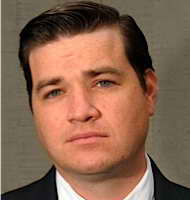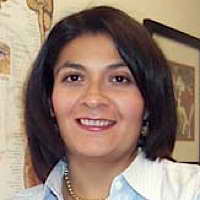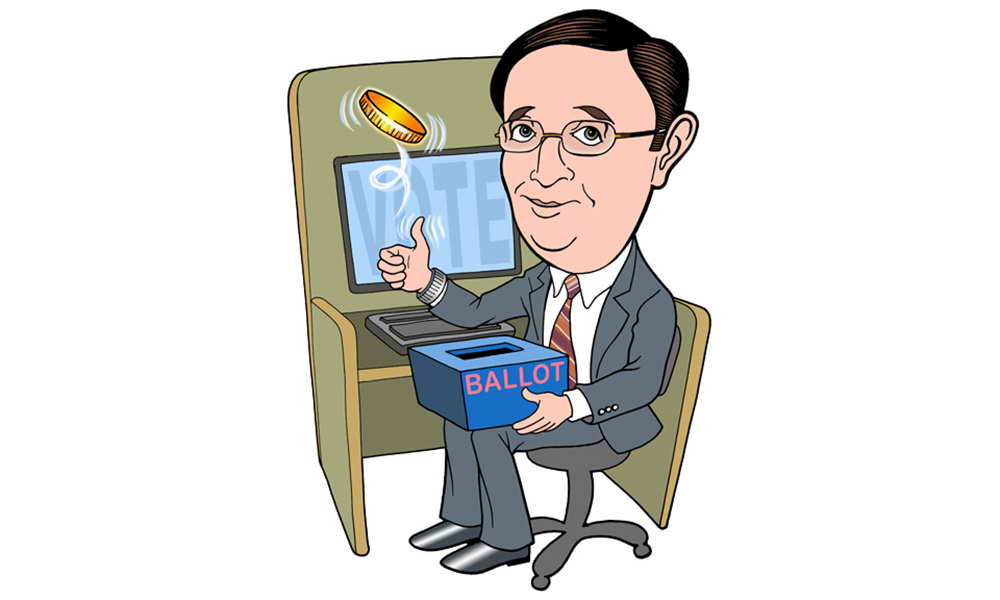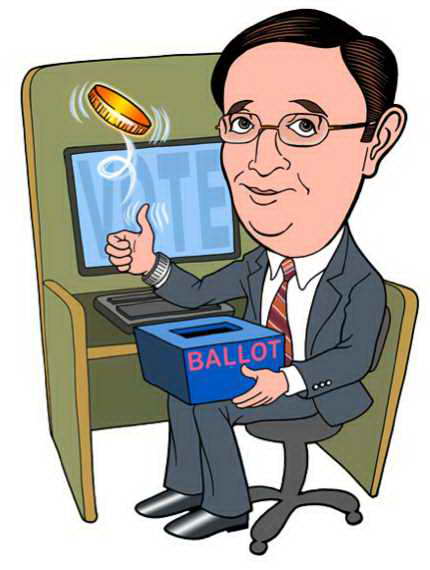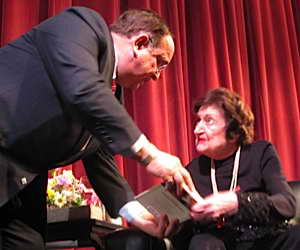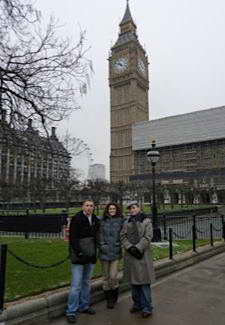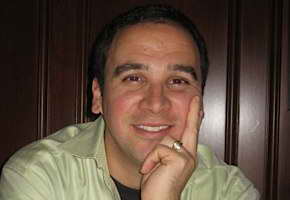What is the current state of the economy? Who’s to blame, and what is the possible impact of unemployment on long-term earning potential? Phil Izzo is a reporter for the Wall Street Journal, and he recently discussed these issues and more with the Marist Poll’s John Sparks. Read the transcript below.
John Sparks
The Marist Poll questioned Americans on how they felt the President was performing in the area of the economy. President Obama has been in office 18 months now. Have we reached a point where he must shoulder the blame for the current economic state instead of his predecessor, George W. Bush?
Phil Izzo
Well, I think that’s a difficult question, because it’s hard to shoulder — it’s hard to put blame for any economic issue too much on the shoulders of a president. Did the President — President Bush get too much of the blame when the economy tanked? Probably. He took a lot — took more of a beating than it was probably warranted. A lot of these things are beyond a president’s control. I mean they can do what they can, but we have an economy that’s run primarily by the private sector, and there’s only so much that the government can do one way or another to either promote growth or to institute policies that subtract from growth.
John Sparks
Some might say that a free market economy driven by the greed of investors on Wall Street got us into the mess. Others say that huge government bailouts aren’t pulling us out of the problem and, in fact, may be part of the problem. Is there some middle ground that we need to be looking at to turn things around?
Phil Izzo
It’s sort of an over simplification to say that we — greed got us into this, and now we’re at a point where the government is making it worse or the government is the solution. There sort of has to be… At this point we’re in a position where the economy suffered so badly that the private sector couldn’t pull itself out, so we had programs like the TARP, which is universally considered to have been a positive thing for propping up the financial system, for the most part. There was a significant fear in 2008 if we didn’t do anything, the entire economic system could collapse. Through the TARP program, we were able to at least stabilize things. And then since then, there’s been a lot of different programs to move through. Now there’s… Take the stimulus, for example. There’s a lot of arguments on both sides about what’s wrong with the stimulus. Some people are saying straight out that stimulus failed, but that doesn’t seem to be — that… economists don’t really back that idea. There are debates about how much stimulus you should pump into the economy. There’s debates about how the stimulus should be distributed. Should it be directly given to states? Should it be given to citizens through tax cuts? Should it be given to the poor through the food stamps or unemployment benefits or something like that? But for the most part, economists agree that some level of government support when the economy is so low, is so — is — was so — suffering so badly was necessary, and now, we’re at a point where it’s difficult to make that determination. When we first passed the stimulus, it was much clearer that the economy needed some level of government support. At this point, it’s much harder to… There’s more room on either side of the debate where some are arguing — well, the private sector is starting to recover, and we have to sort of let that happen. But on the other side, we’re still in a pretty deep hole, especially when you look at the unemployment situation. There’s people… the amount of people who’ve been out of work for more than 27 weeks is at about six-million people. That’s more than double the highest it’s ever been in — since 1948. So, there’s this debate about can the private sector completely take over now or should the government be injecting more money and trying to promote jobs? But again, both of those issues are difficult to address at this point when we see some growth, but we just haven’t seen that blockbuster growth yet.
John Sparks
Well I want to explore two things that you said: one about jobs and the lack of them. That is, of course, still a problem. Part of the problem is that technology has done away with tasks that have kept several folks earning a paycheck. How can you put people back in jobs when machines or computers are doing the work that people are no longer needed for?
Phil Izzo
Well, that’s obviously a big issue, and we’ve seen over the last couple of years productivity has really soared in this country, and a lot of that is through the technology, and there are some jobs that you just have to accept are not coming back. And the best way to do that is to have new jobs. And, there’s a question about how much the private sector can do and how much the government can do and what the government’s role in that is. I mean if people have to transition from one career to another, they need to be re-trained. Now should that be handled by government or should that be handled by private sector or can — is there some way to do those things together? But the problem is that training, just throwing money at training doesn’t really do anything unless there’s jobs for those people to train into. You sort of have to hope that the economy creates new types of jobs that those people who have lost their position through technology or other major impacts like the construction industry for example, the people have lost a lot of jobs in construction over the last couple of years after the housing boom essentially busted. At this point, you have a problem where those jobs, the number of jobs that were in that sector, they’re just not going to come back. We… we’re building residences at a much too quick rate, so there’s some of those people are just not going to be able to find jobs in construction, so what do they do? Now there’s been pushes for green jobs and things like that, but the problem is that there’s not necessarily enough. There’s only so much the government can do if the private sector doesn’t have a job for that person to fill.
John Sparks
For those people looking for jobs, is this a case where many people must lower their standards and expectations, perhaps working for lower wages and not being afraid to do jobs that they feel are beneath them in order to get back to work?
Phil Izzo
Well, it is always positive to be working. It’s a good thing to be for the most part. What happens when someone is unemployed for a long-term — a long time, it can have really negative effects on their long-term earning potential. The longer you’re out of a job, the harder it is to get back to a job. So I… there’s debate about whether there are people out there who want a job but are just unwilling to take a certain job. I’m not sure how large that number of people is, but it is generally a good thing to be working instead of to be unemployed. But at the same time, there — you have to find something to support your family, so does working a lower level job make it harder for you to find a higher level job? That’s another debate.
John Sparks
I want to get back to the stimulus for a moment, specifically about the stimulus to get — turn companies around. I’ve heard some say that when you allow a company to get so big that you cannot afford to let it fail that you’re asking for the trouble that we’ve seen, and some have suggested to me that what we need is a trustbuster or someone to break up monopolies in the likeness of a Theodore Roosevelt. Any thoughts on something like that?
Phil Izzo
Well, I mean, there is a big concern about too big to fail, especially with banks, but we’ve seen that it goes even beyond banks. I mean if you look at the U.S. automakers, essentially the government bailed out GM and Chrysler because they felt that they didn’t want — that they were too big to fail, too big of an employer to fail, too big a part of America to fail. I mean the bigger concern is with banks, and they’re working on that right now in the financial regulatory overhaul that they’re working on conference committee. There seems to be a really strong drive to make it easier to unwind something like that so we don’t have the same situation we had when Lehman Brothers failed in 2008 and the whole system seemed to implode for a short while. There needs to be some sort of process in place, and bankruptcy in fact does it for the most part for much of the private sector. But, there are those companies that get to be so ingrained and interconnected that their failure can affect a huge amount of the rest of the economy, and there needs to be some mechanism in place to wind those down.
John Sparks
Some people have talked to me about fiscal responsibility beginning with individuals — that financial solvency means living within our means, paying off credit card debt. Many Americans are not doing this, and the truth is that governments aren’t doing it either. Should the federal government take the lead with an austerity program if we expect to get out of debt and turn this thing around?
Phil Izzo
Well, I think that the government needs a plan. Do I think, right now, the government should be making serious budget cuts? It probably isn’t the best time to do that. I mean, we’re still just have these tentative steps into recovery. It’s not necessarily the best time to be hacking and slashing government spending. But at the same time, you can create credible plans that the markets can look at and that the country can look at, the citizens of the country can look at and see this is a serious step towards reducing government expenditures. Maybe right now is not the best time to start hacking and slashing away at the budget. But in the long-term, if there’s a plan, people will understand that keeping your budget deficit under control is an important goal. It’s just… the problem is when to do it, and the other problem is that Congress has gone back on itself so many times over the last 40 years that people don’t trust that when they make that plan they’re going to actually stick to it. It’s really easy to say that you’re going to go on a diet tomorrow, but how many of us actually go out — how many of us actually do it? What they need is… it’s difficult to have credibility with the American people, and it’s not this administration’s fault or this Congress’ fault necessarily. It’s something that you just seen happen for decades where they say when things are fat, they say, “Well, we’ll cut eventually,” and then it just never happens.
John Sparks
Phil, is the problem that we want to easy answers for tough problems? We have no fault divorce. We don’t want to sacrifice. We want it all, but the truth is we cannot have it all, can we? And because of that, folks will have to suffer, and we’re trying to delay or prevent that from happening?
Phil Izzo
Well, I think that I mean, if you’re talking about government, that is definitely the truth. I think people expect a lot but don’t realize that it has to be paid for necessarily. I mean, if you look at the federal budget, I mean, the biggest problem by far is paying for Medicare. But at the same time, it’s — no one ever wants to cut anything in Medicare. No one ever wants to seriously take… it’s politically unpalatable to make those cuts because people expect certain things from the government. But, the problem is there’s — you have to… if you’re going to provide services like that, you’re going to have to some money coming into the government. So, it’s great to cut taxes. It’s a good thing for the economy. It promotes investment and things like that. But if the government’s going to provide services, it needs to get that money from somewhere. So, if you’re going to cut taxes, then you’re probably going to have to cut spending because you can’t take more — you can’t send out more than you’re getting in.
John Sparks
Phil, there’s certainly greater minds than mine that have put some thought into this, and we could certainly talk all day. I wanted to kind of close things off and ask you is there anything else that you might want to share with our listeners about the problem of the economy that we haven’t touched on… something that you might want to add?
Phil Izzo
Well, I mean I think we’ve hit the big points. I mean, the biggest struggles going forward is: Is this real? I mean we were just talking about the balance between jobs and deficit. I mean, we know that in the long-term we have to deal with the amount of debt that the U.S. government has. And at the same time, we’re facing this issue where –I mean, the jobs picture is really, really bad right now. I mean the amount of people who are unemployed, the amount of people who have been unemployed for a long time… and when we had situations like this in the past in the 1980’s and the 1970’s where we had a huge number of people unemployed, we — the economy grew very strongly afterwards because it was a different type of recession than we are — than we’re in right now. So those jobs came back relatively quickly. In the last two recessions, in the 1990’s and in early in this decade, early in 2000’s, it took a much a longer time. We didn’t the same level of job losses, but when the jobs started to come back, they came back at a much slower rate. And we seem to have the worst of both worlds right now where we saw this huge spike in unemployment like we saw in the 1980’s and 1970’s, but we’re seeing that really slow return back to employment. When you’re in an environment like that, that’s — there’s — something has to be done because you can’t have this long-term problem with your citizenry. But at the same time, we are facing this — severe issues with our budget where we’re going to be in a position where it’s going to be difficult to pay things off.
John Sparks
Well, Phil, I thank you so much for your time. We’ll continue to look forward to your reports for the Wall Street Journal. And again, thank you for taking time for Marist today.
Related Stories:
6/30: Turning Tides … Half View Obama as Not Meeting Expectations
6/30: 57% Say Obama’s Handling of Gulf Spill No Better Than Bush’s Katrina



